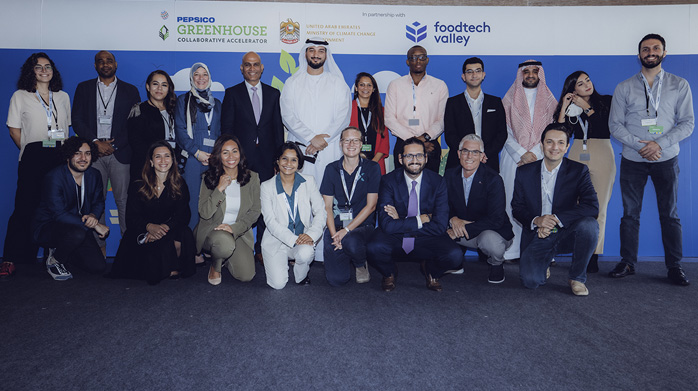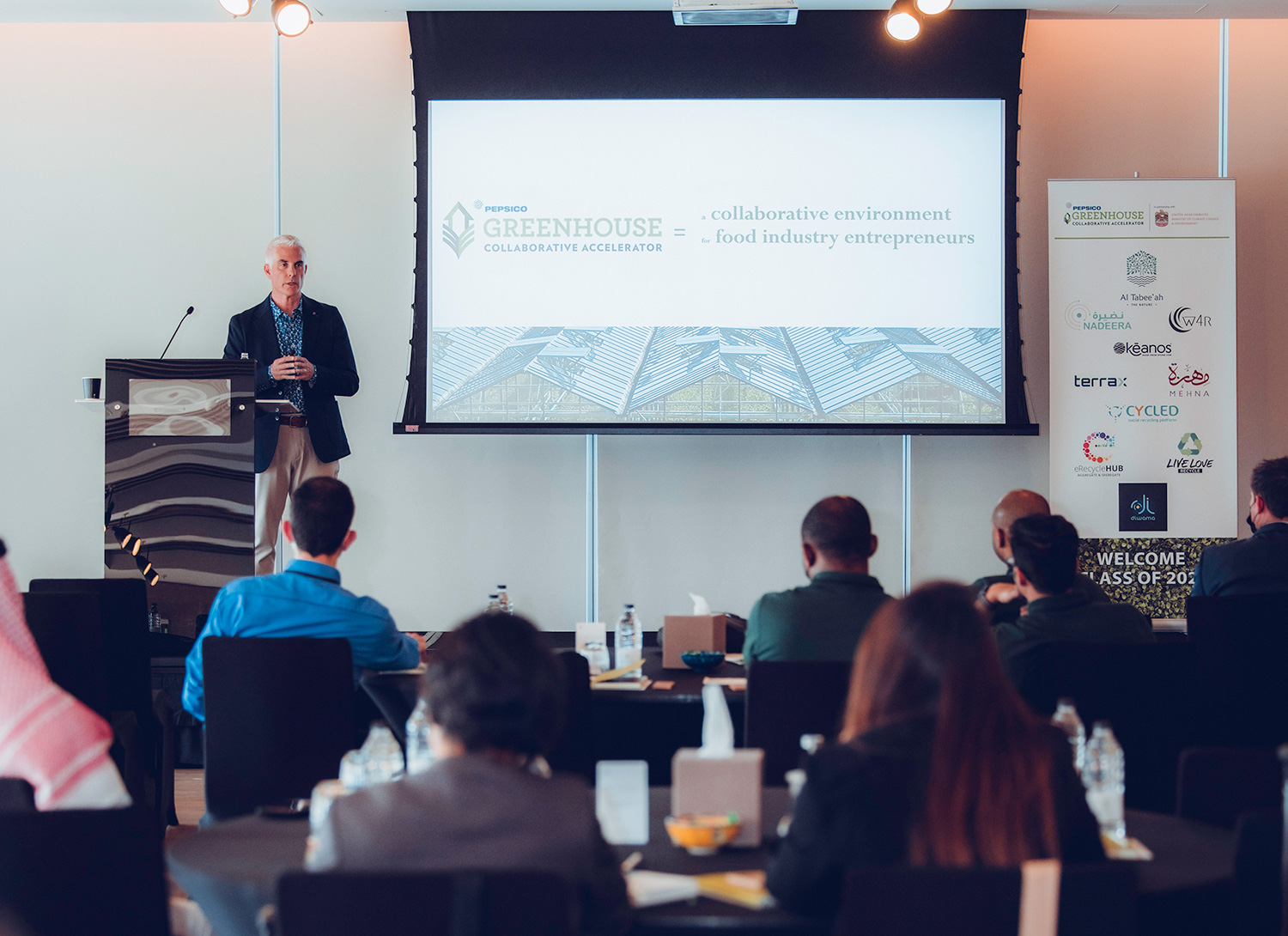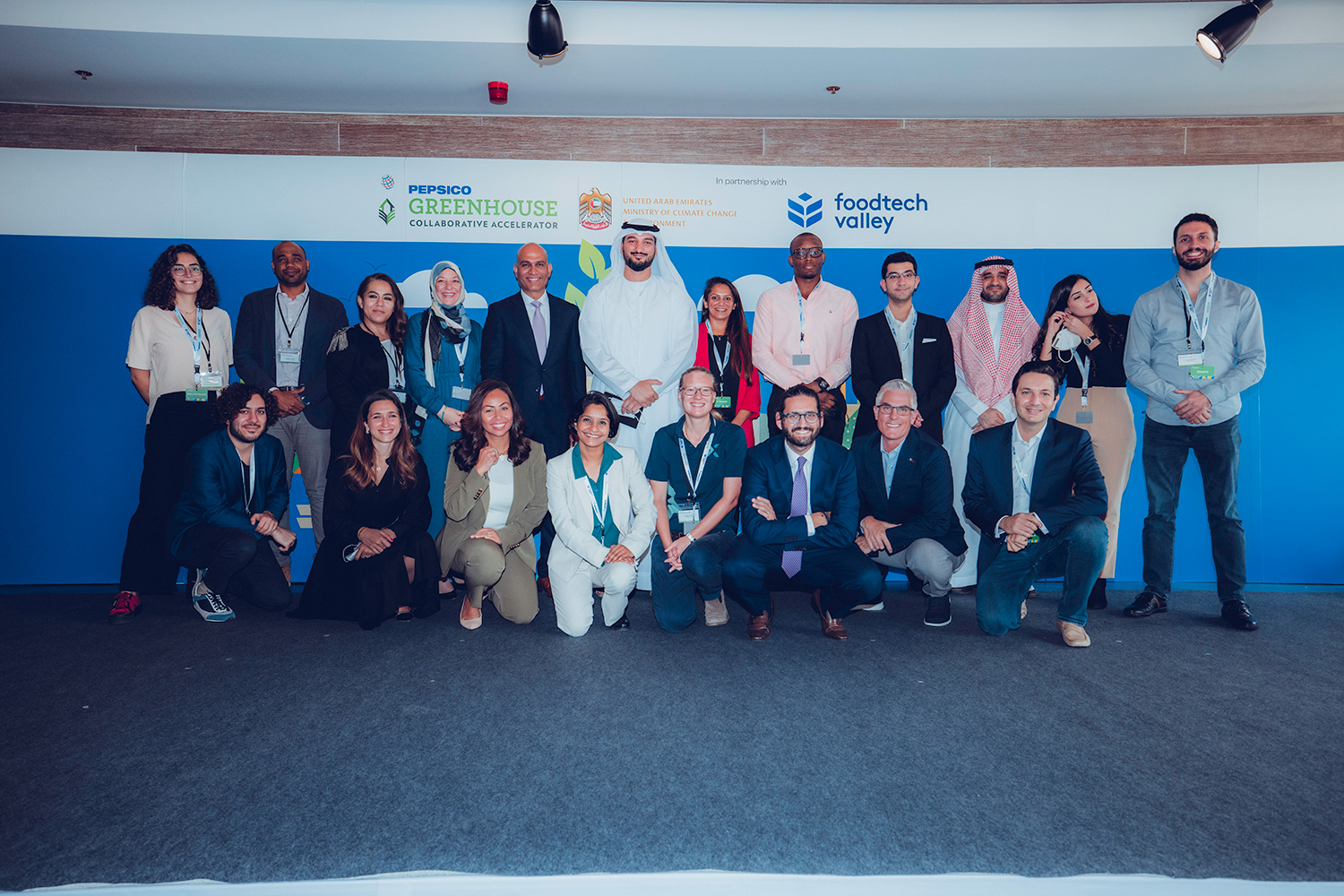
Whether it’s Kodak Film or Blockbuster Video, large corporations with a long history of success can still lose it all overnight if they lack strategic foresight and the ability to quickly pivot their business models. These vulnerabilities are often due to a company having a low-risk tolerance, inability to move quickly, and no in-house expertise on emerging trends. These incompetencies are not just bad for a company’s bottom line, they can also slow down the progress toward important sustainability and social impact goals.
Startups, on the other hand, tend to face different, but complementary challenges. Many small businesses start out with cutting-edge and disruptive business concepts, which may also aim to have a positive societal impact. However, these fledgling enterprises often lack the financial backing, expertise, and network to effectively market, scale their products and service and grow sustainably.
As a way of helping both types of businesses address these gaps through a symbiotic relationship, a growing number of large corporations have launched their own startup business accelerators. According to GCV Analytics, the number of corporate investments in startups almost tripled between 2013 and 2018, rising from 980 to 2,795 in the five-year span, while 75 percent of Fortune 100 companies now have some type of internal venture capital initiative, such as a startup accelerator. Some of the well-known brands operating accelerators include Disney, Samsung, Amazon, Microsoft, Google, and Mastercard. The programs typically work with a cohort early-stage startups over several months, providing them with expert mentoring, key industry connections, and seed money to help scale their new business concept.
Innovation for social impact
Initially, many corporate accelerators focused on helping large companies solve practical business challenges, such as improving efficiency. However, more corporations are now harnessing the unique ingenuity of startups to help to address pressing social issues, such as reducing pollution or improving diversity, equity, and inclusion. Amazon’s Black Business Accelerator aims to grow Black-owned businesses, while Google has held climate change-focused accelerators in Europe and North America. There is almost no limit to the type of global development and equity challenges that corporations can help address by leveraging the ingenuity and creativity of startups.
One example of this win-win-win approach for large companies, startups, and social impact is PepsiCo’s Greenhouse Accelerator. The accelerator was launched in 2017 in Europe and has worked with more than 40 companies and 75 mentors across multiple continents and focus areas. Currently, PepsiCo is running a sustainability focused accelerator in the Middle East and North Africa (MENA) region that supports emerging and disruptive technologies and services that help reduce, recycle, and reinvent packaging materials.
During the six-month program, selected startups work with a PepsiCo mentorship team and receive an initial $20,000 USD grant, along with business training courses. The startups’ sustainability solutions range from biodegradable materials to apps that incentivize recycling programs to artificial intelligence-powered waste sorting, among others. At the closure of the program, one participating startup will be awarded a $100,000 USD prize to help scale their innovation. The MENA Greenhouse Accelerator supports PepsiCo’s wider sustainability goals, which include achieving net-zero carbon emissions by 2040 and becoming net water positive by 2030.

A mutual growth opportunity
In addition to promoting social impact, working with startups can help established companies improve their bottom line and foster an internal culture of innovation. Accelerators allow corporations to participate in the process of investing in startups, enabling them to identify promising new deal flow and potential partnerships that can keep them on the cutting edge of product development. These programs can also help drive a cultural shift at large corporations by exposing employees to the creative thinking processes and willingness to take risks that are common at startups. PepsiCo sees this two-way exchange as one of the main benefits of its Greenhouse Accelerator, with the aim to instill a strong sense of innovation and agility throughout the corporation.
“PepsiCo’s MENA Greenhouse Accelerator is a perfect example of how socially conscious brands can do good for the world and do good for their bottom line at the same time,” said Michael Hammer, president of Atomic Brand Lab, whose company helps run the Greenhouse Accelerator in partnership with DevGlobal Partners. A former PepsiCo executive himself, Hammer is a strong believer in the mutual benefits to be gained from corporate business accelerators. “It’s often the case that large multinational companies have just as much to learn from working closely with startups as these small companies have to gain from them.”

The future of corporate collaboration
While finding startups and managing an accelerator can seem like a daunting task, especially for the first time, corporations don’t have to run these programs all on their own. Atomic Brand Lab and DevGlobal Partners work with companies such as PepsiCo to design and manage all aspects of corporate accelerators, including promoting calls for application, developing learning modules, facilitating mentorship coaching, managing events, and supporting the selection of finalists.
Hammer speculates that while corporate accelerators are increasingly common in the tech, telecom, and finance sectors; companies in industries such as retail and food and beverage, could benefit just as much from working with startups. He noted that Atomic Brand Lab and its partners are enthusiastic to leverage their experience with past accelerators to help companies launch their own programs. “More corporations are starting to realize that working with startups can add value not just to their business processes, but also to their social impact goals,” Hammer added.
Leading a startup accelerator can help companies enhance their social impact ability, improve their agility and innovativeness, and grow their bottom line. Furthermore, sponsoring corporations can run such programs more efficiently by working with experienced partners to design and execute a successful accelerator on their behalf. As more large companies seek to leverage and learn from the ingenuity of startups, it shows that there is an increasing belief in the ability of small businesses to help drive big changes in the world.
About Atomic Brand Lab and DevGlobal
Atomic Brand Lab supports companies with breakthrough product innovation, emerging brand development, brand incubation, and cultural change through consumer research, methodical management, and creativity.
DevGlobal Partners spans Africa, India, and the United States and supports the world’s leading non-profits, companies, philanthropies, multilateral agencies, and government agencies on their innovation and sustainability initiatives. To learn more about how the team can facilitate accelerator programs for your organization, write at info@dev.global and mhammer@atomicbrandlab.com.
